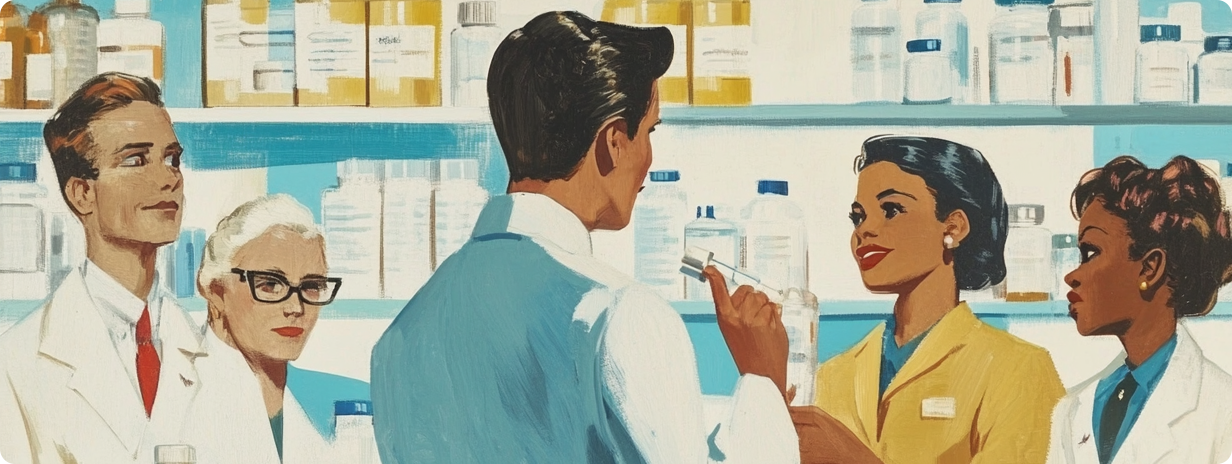In an ever-evolving U.S. healthcare landscape, life sciences companies are continually challenged to rethink their approach to healthcare provider engagement. Traditionally, physicians—particularly specialists and high-prescribing MDs—have been the primary focus of industry outreach and promotional efforts. But that paradigm has started to shift over the last decade.
The rise of advanced practice providers (APPs), which includes nurse practitioners (NPs) and physician assistants (PAs), represents one of the most significant changes in how care is delivered in America. With more than 500,000 APPs across the U.S., they have come to play an increasingly vital role in closing healthcare gaps and influencing therapeutic decision-making.
This shift appears to be structural and enduring. Current and projected physician shortages are pushing the system to evolve, and APPs have stepped up to fill the gaps. Rather than merely supporting physicians, they now serve as frontline providers in both general and specialty settings.
Life sciences marketing teams must adjust accordingly and engage APPs in ways that recognize their unique workflows and needs. The problem? Engagement strategies built for physicians don’t automatically translate to APPs, who work in different and distinctive ways.
First and foremost, APPs are trained to approach care through a holistic lens. Their education emphasizes patient experience and empathy, which renders them particularly attuned to the way that treatment decisions align with individual patient goals and values.
APPs also spend more time directly interacting with patients than physicians, who continue to wrestle with high patient volumes and administrative constraints. This extra time allows them to reinforce treatment rationale as well as incorporate educational tools and materials directly into the patient visit. It makes them effective conduits for branded and unbranded pharma resources.
That speaks to yet another of the important roles APPs play: educating and empowering patients by simplifying medical jargon and acting as allies in shared decision-making. APPs are central to managing complex and multi-system conditions, especially in the realms of oncology, endocrinology, neurology and rare disease. And they adapt quickly: Many APPs learn these specialties on the job, often without formal training in disease state nuances prior to entering a specialty practice.
Pharma has seen the light, and started to adapt its commercial and medical engagement strategies to more effectively engage with APPs. Acknowledging that email blasts and journal ads no longer move the needle as much as they once did, the industry has diversified its channel strategy. APPs consume content in a broad range of channels, everything from clinical webinars to peer forums.
Platforms like Reddit, where APPs discuss real-world patient cases and seek peer input, can offer healthcare marketers a window into the challenges APPs face daily. There are also plenty of opportunities for the industry to engage with NP and PA influencers, who alternately educate, entertain and vent across a wide range of social media platforms.
To that end, the types of content used to engage APPs has evolved and must continue to do so. The long presentations and dense white papers traditionally created for physicians are not ideal for busy APPs, who are more responsive to quick-hit videos that deliver clinical pearls or demonstrations of administration techniques. Think 60 to 90 seconds of content that are practical, digestible and shareable, using language and tone that reflects the patient-first ethos of these audiences.
One potential upside for life sciences marketers is that, unlike many physicians who limit rep access, APPs often welcome these interactions. The usual caveats apply: Reps must understand the nuances of the NP and PA roles, come prepared with relevant educational content and act as consultative partners rather than sellers.
In addition to marketing outreach, life science companies might choose to invest in the clinical development of APPs, especially in the aforementioned specialty areas where formal training may be lacking. To bridge these gaps, some pharma organizations have hired NPs and PAs and tasked them with engaging their peers on a one-to-one basis. These specialists are uniquely situated to provide non-promotional clinical insights and help APPs interpret guidelines and data in practical ways. Pharma might also collaborate with professional associations, academic institutions and health systems to support continuing education programs specifically tailored to the needs of APPs.
As for what comes next, it’s worth repeating that the rise of APPs does not represent a temporary blip on the healthcare employment radar. Rather, it represents a foundational shift in how healthcare is delivered in the United States. Pharma marketers only have so many opportunities to inform and educate influential audiences; failing to acknowledge everything APPs have to offer is borderline professionally negligent.
The U.S. healthcare system is changing. APPs are surging in number and influence. And companies that custom-tailor approaches to their unique needs will enjoy a genuine competitive advantage in the years ahead.
Jonathan Mariano previously served as director, omnichannel customer engagement skills training, at Novartis




